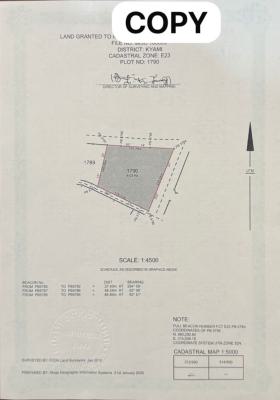Mixed-use Land for Sale in Kyami, Abuja
10
What is the average price of mixed-use land for sale in Kyami, Abuja?
The average price of mixed-use land for sale in Kyami, Abuja is ₦13,500,000 per square meter.
What is the price of the most expensive mixed-use land for sale in Kyami, Abuja?
The price of the most expensive mixed-use land for sale in Kyami, Abuja is ₦26,500,000 per square meter.
What is the price of the cheapest mixed-use land for sale in Kyami, Abuja?
The price of the cheapest mixed-use land for sale in Kyami, Abuja is ₦13,500,000 per square meter.
How many mixed-use land for sale in Kyami, Abuja are available?
There are 10 available mixed-use land for sale in Kyami, Abuja.
You can view and filter the list of property by price, furnishing and recency.




